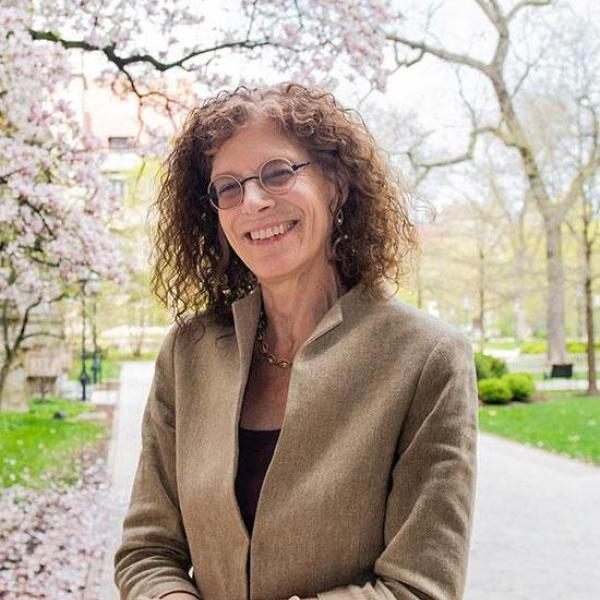
The Department of Race, Diaspora, and Indigeneity (RDI) offers graduate-level courses through its core and affiliated faculty. Those taking classes or seeking advising at all levels of graduate studies in RDI can expect to be trained rigorously in approaches to situated knowledge and experience in modern and contemporary contexts. This involves attending to particular categories of race, diaspora, and indigeneity, as well as connecting these categories in comparative and intersectional ways.
The Center for the Study of Race, Politics and Culture (CSRPC) faculty, students, and staff have been committed to establishing a new type of research institute devoted to the study of race and ethnicity, one that seeks to expand the study of race beyond the black/white paradigm while exploring social and identity cleavages within racialized communities. Scholars affiliated with the Center have also endeavored to make race and ethnicity central topics of intellectual investigation at the University of Chicago by fostering interdisciplinary research, teaching, and public debate. Fundamentally, the Center is committed to contributing intellectually challenging and innovative scholarship that can help people transform their thinking and their lives. Towards those goals, the Center provides funding and other types of support for projects initiated by faculty affiliates, graduate students, undergraduates, artists-in-residence and visiting fellows.
Selected Faculty
Sample Courses
CRES 20282 - Immigrant America (René D. Flores)
Nearly 60 million immigrants have arrived in the U.S. in the past 50 years, mostly from Latin America and Asia, but also from Africa and the Middle-East. Today, a near-record 14% of the country's population is foreign born compared with just 5% in 1965. These profound demographic changes raise critical questions: Why do immigrants come to the U.S.? What impact do they have on U.S. society? Are today's immigrants fundamentally different from previous waves of immigrants? Are these immigrants assimilating to the U.S. or retaining their culture? Why do some immigrant groups appear to fare better than others? This course will expose students to the latest social science research on contemporary immigration to the United States. We will explore its origins, adaptation patterns, and long-term effects on American society.
CRES 21025 - Creating a Different Image: Black Women's Filmmaking of the 1970s-90s (Allyson Field)
This course will explore the rich intersections between African American women's filmmaking, literary production, and feminist thought from the 1970s to the early 1990s, with an emphasis on the formation of a Black women's film culture beginning in the 1970s. We will examine the range of Black feminisms presented through film and the ways that these films have challenged, countered, and reimagined dominant narratives about race, class, gender, and sexuality in America.
CRES 21207 - Ecocentrism and Environmental Racism (Bart Schultz)
The aim of this course is to explore the tensions and convergences between two of the most profoundly important areas of environmental philosophy. "Ecocentrism" is the view that holistic systems such as ecosystems can be ethically considerable or "count" in a way somewhat comparable to human persons, and such a philosophical perspective has been shared by many prominent forms of environmentalism, from Aldo Leopold's Land Ethic to Deep Ecology to the worldviews of many Native American and Indigenous peoples. For some prominent environmental philosophers, a commitment to ecocentrism is the defining test of whether one is truly an environmental philosopher. "Environmental Racism" is one of the defining elements of environmental injustice, the way in which environmental crises and existential threats often reflect systemic discrimination, oppression, and domination in their disproportionate adverse impact on peoples of color, women, the global poor, LGBTQ populations, and Indigenous Peoples.
CRES 21275 - Theologies from Africa, Asia, and Latin America (Dwight Hopkins)
What are the life factors and specific contexts that amazingly gave rise to religious thinking in the 1960s Third World theologies? And what are the relations among gender, culture, politics, and economics in these global theologies? This class compares and contrasts various systems and methods in contemporary theologies, male and female, in Africa, Asia, and Latin America. As we engage these systems of thought, we want to examine the logic of their theologies and the sources used to construct knowledge -- particularly the relation between the materiality of context and the imagination of theology.
A full list of courses from the Department of Race, Diaspora, and Indigeneity is currently forthcoming.
Recent Race, Diaspora, and Indigeneity Thesis Projects
"Black Migration in the Black Lives Matter Framework"
Tara Guillame, MAPH '20
Advisor: Sarah Jessica Johnson
"Fragmentations of the Black Maternal in Gayl Jones’ Corregidora"
Kaitlyn Rudney, MAPH '20
Advisor: Kaneesha Parsard
""Nothing Feels Like a Song:" Racial Melancholia, the Palimpsest, and Other Bluesy Texts"
Brooke Ward, MAPH '20
Advisor: Tina Post
"Such Is the Evil of This Age: Sea of Poppies and Anachronic Aesthetics of Racial Capitalism"
Mrittika Ghosh, MAPH '19
Advisor: Christopher Taylor



